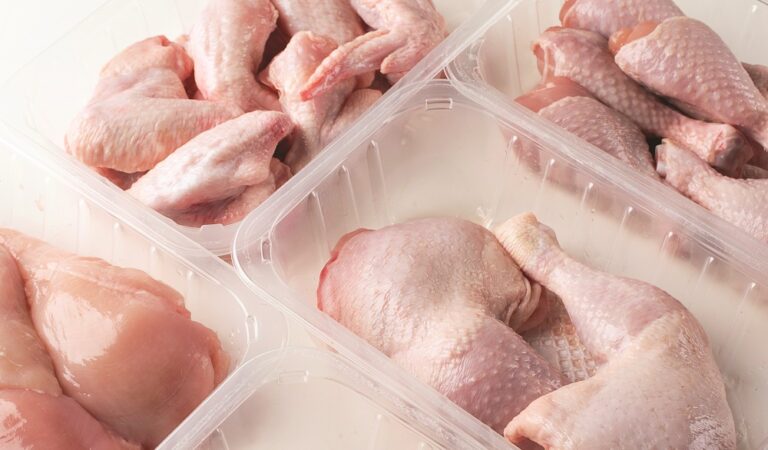Government urged not to sell out UK food workers as advisor says ‘chlorinated chicken’ isn’t a concern
There is no scientific reason the UK should ban imports of chicken treated with chorine wash, as is common practice in the USA, the Government’s outgoing chief scientific advisor has said. Speaking to Sky News, Sir Ian Boyd said consumers in the UK should have a choice over the type of poultry they buy. “From a health perspective there really isn’t a problem with chlorinated chicken,” he told Sky News last week. “The issue is about production processes and animal welfare, and that is a values-based choice.”
The comments raise the prospect that the Government will pursue a post-Brexit trade deal with the US, including meat that was previously banned in Europe under EU trading rules. The British Poultry Council says chlorinated chicken is a sign producers need to ‘clean up at the end’ and is a reflection of the USA’s higher stocking densities and lower animal welfare standards.
The comments are an indication that repeated assurances by former Defra secretary Michael Gove may be worthless in the face of pressure to sign a trade deal with the USA. And the USA’s advance demands have been explicit. Zippy Duvall, head of the American Farm Bureau, told the BBC in August that the UK must accept US food standards as part of any future trade deal with Washington, including the washing of chicken in chlorine.
Arguing that UK fears over the chlorine issue or genetically modified (GM) crops were not ‘science-based’, he said US farmers were keen to trade with their British ‘friends’. A poultry farmer himself, Duvall also said he wanted to have ‘a conversation’ about US food standards, given the concerns in the UK. “You know, here in America we treat our water with chlorine,” he told the BBC’s Today programme. “So, there is no scientific basis that says that washing poultry with a chlorine wash just to be safe of whatever pathogens might be on that chicken as it was prepared for the market, should be taken away. “If there was something wrong with it, our federal inspection systems would not be allowing us to use that.”
The interview followed a visit to London by US national security advisor John Bolton which sparked press reports to the effect that the US could strike trade deals with the UK after Brexit on a sector-by-sector basis. Duvall’s message was that his members don’t want to be left out of any high-speed early trade deal activity.
Red Tractor CEO Jim Moseley reacted sharply to Duvall’s comments. “This cannot be the right thing to do,” he said, adding that Duvall’s comments demonstrate the ‘enormous appetite’ to strike trade deals which allow more US products to be exported to the UK.
“Sanctioning deals of this nature threatens the UK’s world-leading food standards and we repeat our call to government to maintain legislation which currently prevents these sort of products from being sold in the UK.”
The ramping up of activity has prompted, Unite, Britain and Ireland’s largest union, to join the fray, warning chlorinated chicken as part of a post-Brexit free trade deal with the US is ‘the thin end of the wedge’ that could impact on public health and threaten thousands of jobs in the UK.
Unite says it now wants the Government to state that it won’t sell out the estimated 450,000 workers directly employed by the UK food industry in any free trade deal with US president Donald Trump. Unite national officer for food, drink and agricultural Bev Clarkson said: “Unite is demanding answers from the Government and we want a clear statement from Defra secretary Theresa Villiers that she will not sell out our food workers in any deal with Trump. “We also have concerns that some Trump backers in the US have their eyes on the UK meat processing industry.
“There is a good reason why the EU banned chlorinated chicken in the late 1990s – it feared it could mask poor hygiene standards. “We believe that public health standards could be compromised if such chicken and also hormone-enhanced US beef were allowed to be sold in the UK. “Because of the threat of tariff-free access for 90% of imports, this could drive down prices in the supermarkets, which, in turn, could lead to food processing plants in the UK shedding thousands of jobs.”


